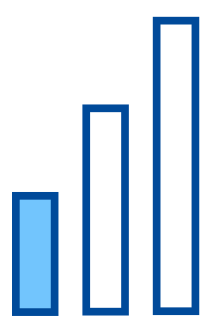- abnormal immune system morphology / MGI
- abnormal spleen morphology / MGI
- abnormal immune system cell morphology / MGI
- hemolytic anemia / MGI
- postnatal growth retardation / MGI
- abnormal immune system physiology / MGI
- abnormal humoral immune response / MGI
- decreased IgG level / MGI
- decreased IgM level / MGI
- autoimmune response / MGI
- reduced fertility / MGI
- premature death / MGI
- abnormal T cell differentiation / MGI
- no abnormal phenotype detected / MGI
- abnormal spleen periarteriolar lymphoid sheath morphology / MGI
- abnormal spleen marginal zone morphology / MGI
- abnormal dendritic cell physiology / MGI
- abnormal CD4-positive, alpha beta T cell morphology / MGI
- abnormal T cell physiology / MGI
- abnormal dendritic cell antigen presentation / MGI
- abnormal B cell physiology / MGI
- abnormal immunoglobulin level / MGI
- increased IgM level / MGI
- abnormal immune system organ morphology / MGI
- increased urine protein level / MGI
- abnormal cytokine secretion / MGI
- abnormal artery development / MGI
- abnormal response/metabolism to endogenous compounds / MGI
- absent CD4-positive, alpha beta T cells / MGI
- abnormal lymphocyte physiology / MGI
- insulitis / MGI
- increased anti-double stranded DNA antibody level / MGI
- increased anti-single stranded DNA antibody level / MGI
- increased anti-erythrocyte antigen antibody level / MGI
- decreased susceptibility to experimental autoimmune encephalomyelitis / MGI
- decreased susceptibility to experimental autoimmune myasthenia gravis / MGI
- decreased regulatory T cell number / MGI
- increased B cell number / MGI
- decreased susceptibility to parasitic infection / MGI
- increased susceptibility to parasitic infection / MGI
- abnormal level of surface class II molecules / MGI
- increased double-negative T cell number / MGI
- decreased susceptibility to autoimmune disorder / MGI
- cardiovascular system phenotype / MGI
- immune system phenotype / MGI
- abnormal CD4-positive, alpha-beta T cell physiology / MGI
- abnormal response to transplant / MGI
- increased CD4-positive, alpha beta T cell number / MGI
- decreased CD4-positive, alpha beta T cell number / MGI
- increased CD8-positive, alpha-beta T cell number / MGI
- decreased CD8-positive, alpha-beta T cell number / MGI
- decreased single-positive T cell number / MGI
- abnormal spleen B cell follicle morphology / MGI
- absent spleen germinal center / MGI
- decreased IgG1 level / MGI
- decreased tumor necrosis factor secretion / MGI
- decreased interleukin-12 secretion / MGI
- abnormal lymph node cell ratio / MGI
- abnormal neuron proliferation / MGI
NOD.Cg-H2-Ab1b-tm1Doi Tg(Cd4-CD4)2362Litt Tg(HLA-DRB1*04:03)/Cnrm
| Status | Under development - register interest |
| EMMA ID | EM:15751 |
| Citation information | RRID:IMSR_EM:15751 Research Resource Identifiers (RRID) are persistent unique ID numbers assigned to help researchers cite key resources (e.g. antibodies, model organisms and software projects) in the biomedical literature to improve transparency and reproducibility in research. See https://www.rrids.org/ for more information. |
| International strain name | NOD.Cg-H2-Ab1b-tm1Doi Tg(Cd4-CD4)2362Litt Tg(HLA-DRB1*04:03)/Cnrm |
| Alternative name | Human HLA DRB1*04:03 |
| Strain type | Targeted Mutant Strains : Knock-out |
| Allele/Transgene symbol | H2-Ab1b-tm1Doi, Tg(HLA-DRB1*04:03), Tg(Cd4-CD4)2362Litt |
| Gene/Transgene symbol | H2-Ab1, Tg(HLA-DRB1*04:03), Tg(Cd4-CD4)2362Litt |
Information from provider
| Provider | Mauro Congia |
| Provider affiliation | Pediatrics, Cagliari University |
| Genetic information | The strain contains the HLA DRB1*04:03 transgene, with MHC class II complete knock-out mutation (H2-Ab1b-tm1Doi or MHCII-delta/delta or IAbeta-) as reported in The Journal of Immunology, 2002, 168:3050–3056. Individual animals may also carry a human CD4-expressing transgene (Tg(Cd4-CD4)2362Litt).
We cannot guarantee absolutely the genotype of the cryopreserved and shipped material and it will be the responsibility of the recipient to provide with recomposing the strain with two mutations (DR4 transgene and IAbeta knock-out) or three mutations if the hCD4 transgene is present. Disclaimer - Special restrictions: 1) Mutant development was phenotype driven. Although for some mutant lines, linkage data and the molecular characterization of the causative mutation has been published, EMMA has not genotyped the strains and can not provide genotyping protocols. 2) Some lines showed low penetrance of the phenotype. 3) Only sperm available. Rederivation service can not be offered. 4) EMMA quality control standards may not apply for these strains. 5) EMMA has not verified the breeding performance and the genetic background of the strains. The genotype/phenotype of the mice is not confirmed by INFRAFRONTIER/EMMA. We strongly recommend that the recipient confirms genotype/phenotype upon receipt. |
| Phenotypic information | Homozygous:No difference in the phenotype between NOD mice homozygous for the transgene and wild-type NOD mice can be detected.Heterozygous:No difference in the phenotype between NOD mice heterozygous for the transgene and wild-type NOD mice can be detected. |
| Breeding history | Human HLA DR4 mice have been backcrossed more than 10 times to NOD background. |
| References |
|
| Homozygous fertile | yes |
| Homozygous viable | yes |
| Homozygous matings required | no |
| Immunocompromised | no |
Information from EMMA
| Archiving centre | CNR, Consiglio Nazionale delle Ricerche, Monterotondo, Italy |
Disease and phenotype information
MGI phenotypes (gene matching)
Literature references
- T cell epitopes of insulin defined in HLA-DR4 transgenic mice are derived from preproinsulin and proinsulin.;Congia M, Patel S, Cope A P, De Virgiliis S, Sønderstrup G, ;1998;Proceedings of the National Academy of Sciences of the United States of America;95;3833-8; 9520453
Information on how we integrate external resources can be found here
INFRAFRONTIER® and European Mouse Mutant Archive - EMMA® are registered trademarks at the European Union Intellectual Property Office (EUIPO).
